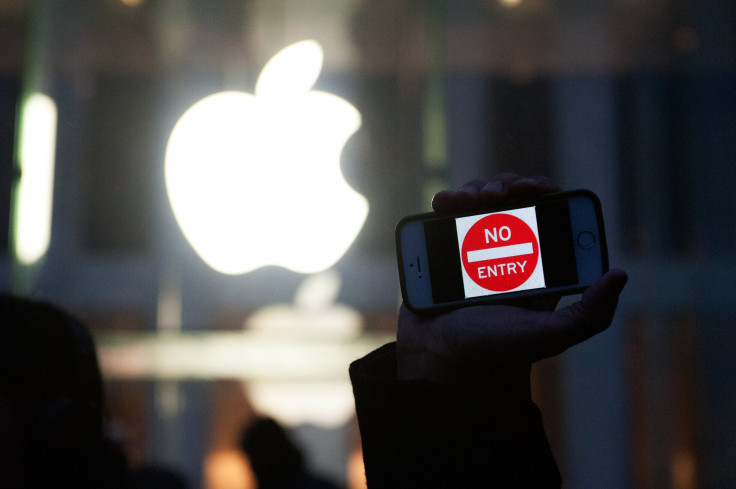Federal Judge Says Apple Does Not Have To Unlock iPhone In New York Drug Trafficking Case

SAN FRANCISCO -- A federal judge in New York has rejected the government's request for a court order that would have forced Apple to unlock the iPhone of a suspected drug trafficker. The ruling has implications for another case underway in a California federal court involving the iPhone of Syed Rizwan Farook, one of two shooters who killed 14 people on Dec. 2 in San Bernardino.
In both cases, the government has turned to the All Writs Act, a law from 1789, to force Apple to unlock the devices, but in the New York case, Magistrate Judge James Orenstein ruled that the 227-year-old law was not intended to resolve issues involving smartphones.
“In deciding this motion, I offer no opinion as to whether, in the circumstances of this case or others, the government's legitimate interest in ensuring that no door is too strong to resist lawful entry should prevail against the equally legitimate societal interests arrayed against it here,” Orenstein wrote. “That debate must happen today, and it must take place among legislators who are equipped to consider the technological and cultural realities of a world their predecessors could not begin to conceive.
“It would betray our constitutional heritage and our people's claim to democratic governance for a judge to pretend that our Founders already had that debate, and ended it, in 1789,” the judge said.
Orenstein's ruling bolsters Apple's argument resisting the FBI in the case involving Farook's iPhone. In that case, Apple CEO Tim Cook has argued the government seeks an unprecedented use of the All Writs Act that would make it possible for law enforcement and others to easily capture the data of any iPhone user.
“The FBI is asking Apple to weaken the security of our products,” said Bruce Sewell, Apple senior vice president and general counsel, in his written testimony for a Tuesday House committee hearing. “Hackers and cyber criminals could use this to wreak havoc on our privacy and personal safety. It would set a dangerous precedent for government intrusion on the privacy and safety of its citizens.”
Meanwhile in Washington, lawmakers Monday afternoon introduced legislation for a 16-person commission to be made up of experts from the worlds of tech, law enforcement and civil liberties. The commission will focus on encryption technology. It is intended to develop recommendations for lawmakers to create legislation that would protect Americans' online “privacy and digital security while also finding ways to keep criminals and terrorists from exploiting these technologies to escape justice.”
The legislation was introduced by Rep. Michael McCaul, R-Texas, and Sen. Mark Warner, D-Virginia. If passed, the legislation would require the commission to report interim recommendations within six months of the group's creation and final recommendations six months later.
The proposed commission was met with initial support from various tech industry organizations.
The Software & Information Industry Association “welcomes a process that leads to a balanced, reasonable dialogue between technologists, security experts, industry representatives, law enforcement and national security leaders,” said Mark MacCarthy, SIIA’s senior vice president of public policy, in a statement. “The issues here are complex, and we face the very real danger that overly broad access to secure systems could undermine the very safety and security we seek.”
Members of the intelligence and law enforcement communities also signaled their support for the legislation. “In a period of rancorous and often counterproductive political debate, this commission would be a critical step in thoughtfully addressing one of our most pressing challenges: protecting privacy and civil liberties while simultaneously enhancing national security and continuing to foster the technological development that drives so much of our economy,” said Michael Leiter, former director of the National Counterterrorism Center, in a statement.
© Copyright IBTimes 2025. All rights reserved.




















